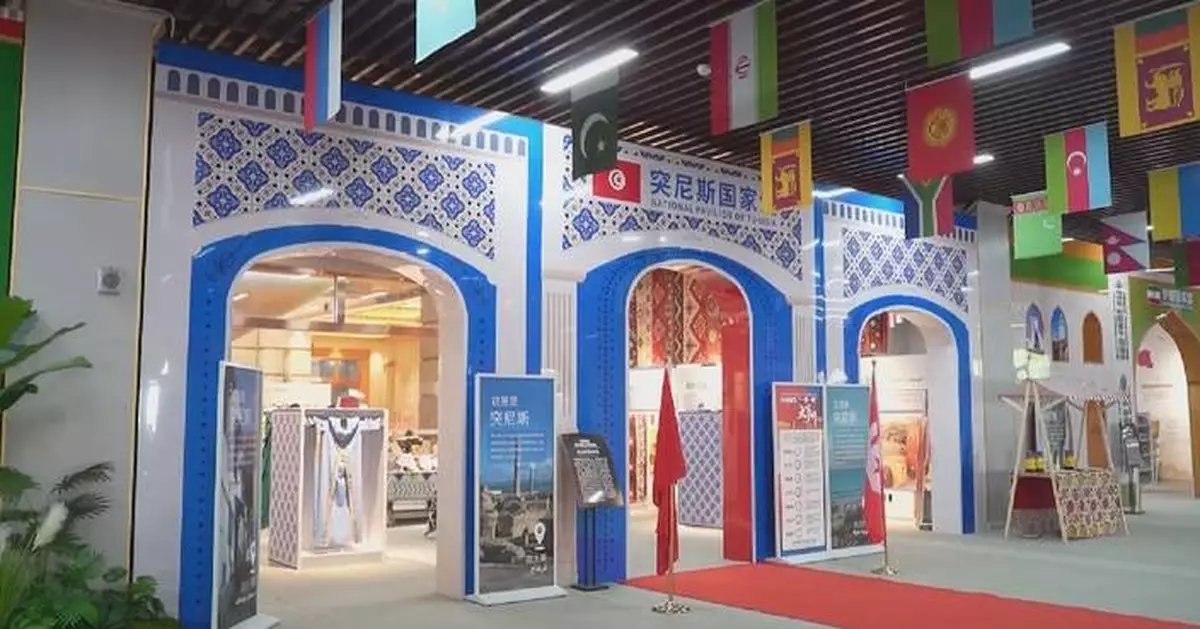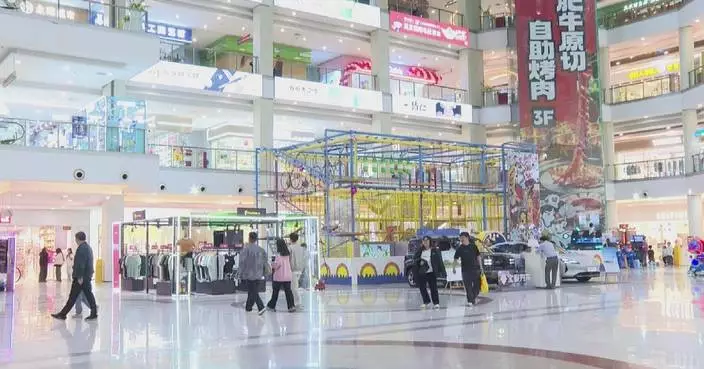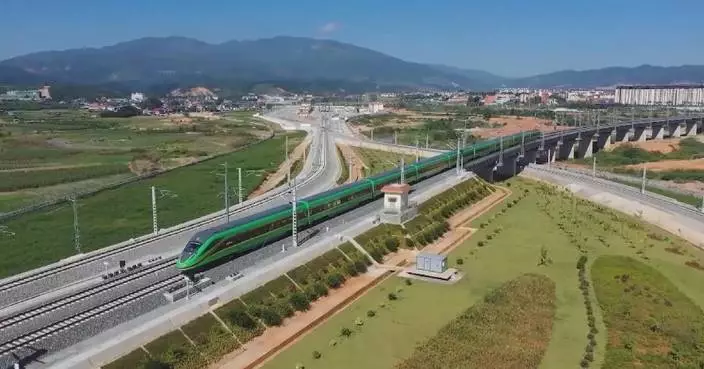The first Tunisian National Pavilion in China opened on Friday in Wuhan, the capital of central Hubei Province, serving as a new platform for promoting economic and trade cooperation, as well as cultural exchanges between China and countries participating in the Belt and Road Initiative.
The newly inaugurated pavilion is located in the Huazhong Service Trade Zone, which hosts pavilions from 52 countries and regions, including Russia, Kazakhstan, Iran, and Uruguay.
More than 30 exhibitors and 40 locally distinctive brands were featured at the newly opened pavilion.
According to experts, Tunisia's agricultural resources, cultural heritage, and green energy are highly complementary to Wuhan's industrial strengths.
"It provides a new window and opportunity for the economic and trade development between China and Tunisia. Iit also promotes mutual understanding of people's opinions and cultural exchanges between the two sides, so as to jointly copes with the impact of anti-globalization and uncertainty in the world economy," said Cai Tongjuan, director of the Macro Research Department of the Chongyang Institute for Financial Studies at Renmin University of China.
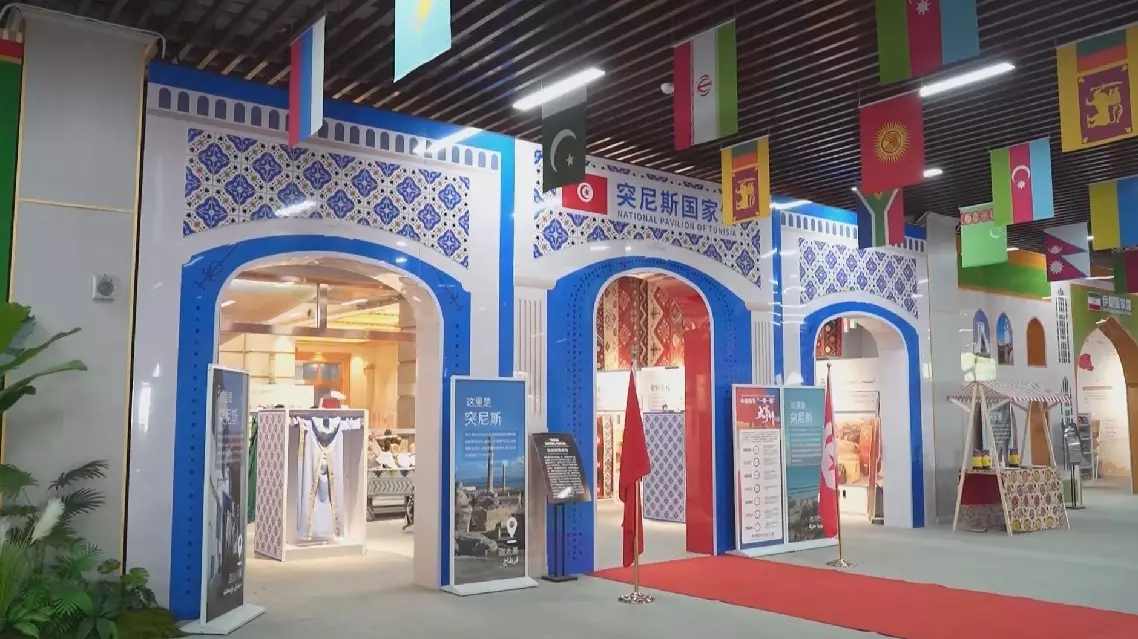
Tunisia opens National Pavilion in China to promote economic cooperation
China's National Development and Reform Commission (NDRC) will work with relevant departments and local authorities to take concrete steps to promote the implementation of the newly passed private sector promotion law, a landmark legislation concerning a vast economic force in the country, said an NDRC official.
China's top legislative body -the National People's Congress - passed the private sector promotion law on Wednesday, establishing a legal backing for the steady and healthy growth of the key sector, including more than 57 million private firms and over 100 million self-employed individuals.
This landmark law is China's first fundamental legislation dedicated to the private sector. It will bolster confidence among the vast community by improving the business environment, fostering innovation, and ensuring fair competition, according to NDRC, the country's top economic planner.
"The private sector promotion law has actively responded to the key concerns in the development of the private sector. Efforts are made to establish and improve relevant systems and enhance the enforceability of the systems, from ensuring fair competition, improving investment and financing environment, supporting technology innovation, focusing on regulated operation, optimizing services and guarantees, and improving rights and interest protection, to strengthening legal accountability, so as to ensure that all forms of ownership can equally utilize production factors by the law, participate in market competition fairly, receive equal legal protection, further unleash their complementary advantages, and pursue common development," said Liu Min, deputy director of Private Sector Development Bureau under NDRC.
Liu added NDRC will continue to work together with relevant departments and local authorities to improve supporting systems and mechanisms and take concrete steps to promote the implementation of the private sector promotion law.
"We will make continuous and increasing efforts to remove barriers to market access and to fair competition, to address the issue of overdue payments to private enterprises, to protect the lawful rights and interests of private businesses and entrepreneurs by the law, to implement various relief policies, to help private enterprises shoulder their responsibilities of the era, so as to help translate legal systems into concrete actions and tangible outcomes that promote the high-quality development of the private sector," said Liu.
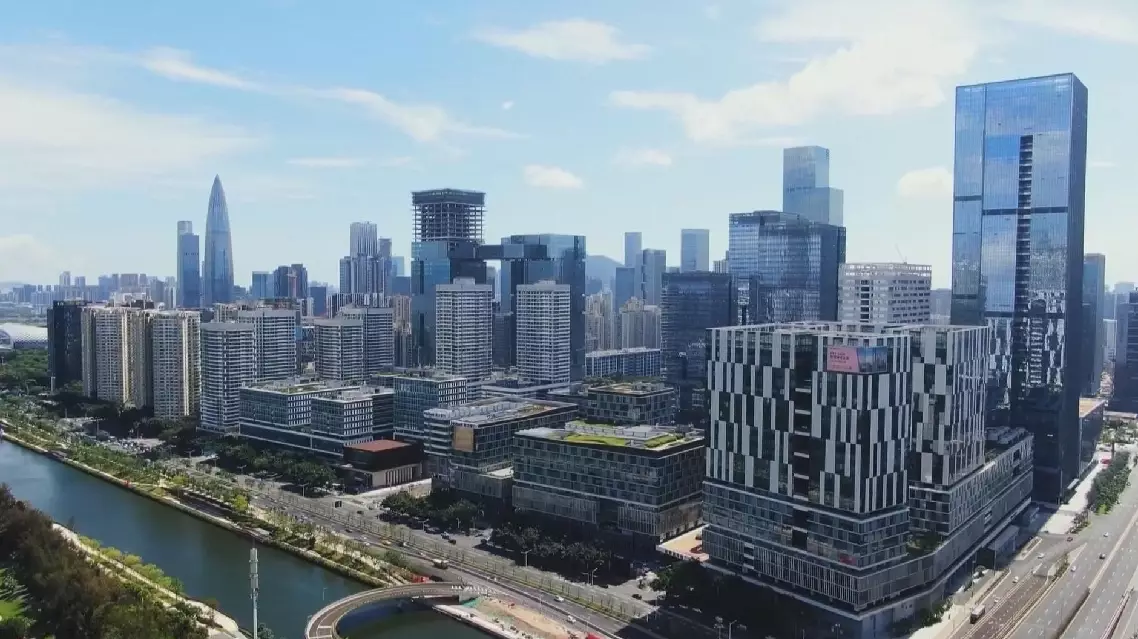
Concrete steps to take for firmly implementing China's landmark private sector promotion law: official



